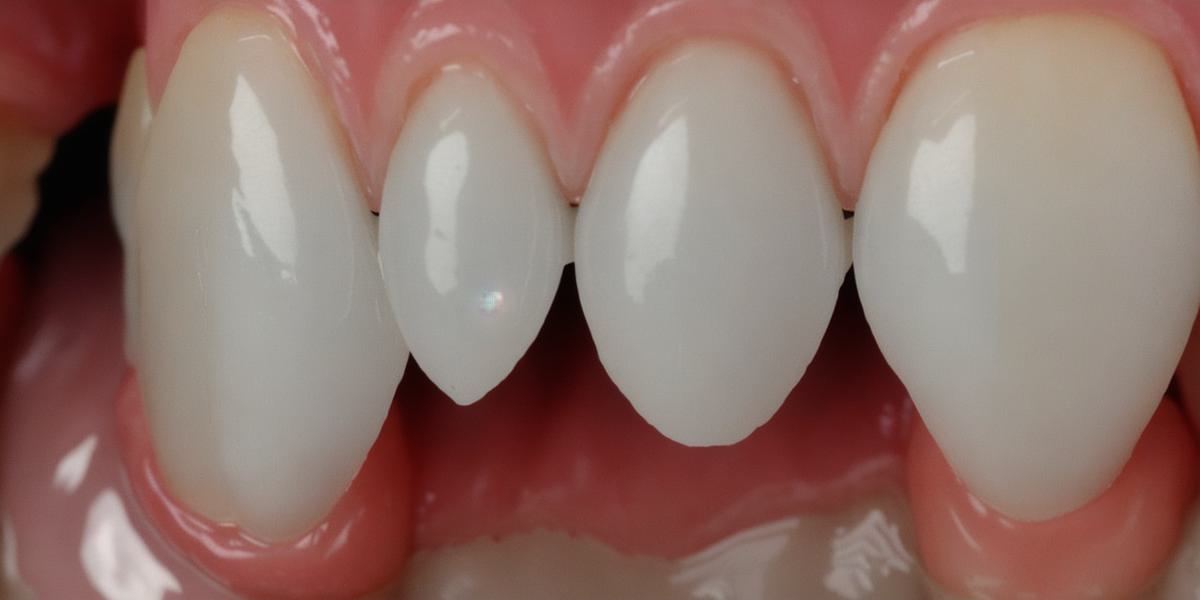Dental implants are a popular treatment option for adults who have lost teeth due to various reasons such as tooth decay, gum disease, or accidents. However, these implants are not typically recommended for children due to several factors. In this article, we will explore the reasons why dental implants are not suitable for children and how other options can be more effective in managing their oral health needs.
The Risks of Dental Implants on Children’s Development
Dental implants involve placing a titanium post into the jawbone to replace a missing tooth root. This process is typically done under local anesthesia or sedation and can take several hours. While dental implants are generally safe, there are some risks associated with them that may be more significant for children.
One of the primary concerns about dental implants in children is the possibility of jawbone growth problems. The jawbone continues to grow until the early 20s, and placing an implant too early can disrupt the natural development of the jawbone. This can lead to uneven jaw growth, facial asymmetry, and other long-term issues such as difficulty chewing and speaking correctly. Children who have undergone dental implant surgery before the age of 18 are at a higher risk of these problems than those who have had them placed later in life.
Another risk of dental implants in children is the potential for infection or inflammation of the surrounding tissue. Children’s immune systems are still developing, and they may not be able to fight off infections as well as adults. This can result in complications such as swelling, pain, and even bone loss around the implant site. The risk of infection is higher when dental implants are placed in areas with poor blood flow or where there is already a compromised immune system.
Alternative Treatment Options for Children
There are several alternative treatment options that are recommended for children who have lost teeth. These include:
- Removable dentures – These are temporary replacement teeth that can be removed and cleaned regularly. They are often used as a stopgap measure while a more permanent solution is being planned. Removable dentures can be made from a variety of materials, including acrylic or metal, and they are typically worn by children who have lost multiple teeth or who have difficulty tolerating fixed dentures.
- Space maintainers – These devices are used to keep the space between teeth open until a permanent tooth or implant can be placed. They are typically made of metal, plastic, or rubber and can be attached to existing teeth or the gums. Space maintainers are commonly used in children who have lost a baby tooth before its permanent successor has erupted, or when there is a delay in tooth eruption due to other factors such as a cleft lip or palate.

- Braces – In some cases, braces may be recommended to realign teeth and create enough space for permanent teeth or implants to grow in properly. Braces are most commonly used in children who have a mix of baby teeth and permanent teeth or who have overcrowding or misalignment issues.
- Pediatric dental implants – While these are rare, they may be considered in certain circumstances where other options are not suitable. However, it’s important to note that children’s jawbones and teeth continue to develop, so the implant may need to be replaced or adjusted as they grow. Pediatric dental implants are typically made from a smaller size of titanium posts than those used in adults, and they are carefully placed to minimize any potential risks to the child’s development.
The Importance of Early Dental Care for Children
It’s essential to take good care of a child’s teeth from an early age. Regular check-ups with a pediatric dentist can help identify any potential issues and prevent the need for more extensive treatment such as dental implants. Pediatric dentists are specially trained in working with children and can provide a fun, non-threatening environment that can help reduce anxiety and promote good oral hygiene habits.
It’s also important to teach children good oral hygiene habits, such as brushing twice daily and flossing once a day. Children should be encouraged to brush for at least two minutes each time they brush their teeth, using toothpaste that is appropriate for their age and developmental stage. Flossing should be done daily to remove any food particles or debris that may get stuck between teeth and cause cavities.
In conclusion, dental implants are not typically recommended for children due to the potential risks to their development and immune system. Alternative treatment options such as removable dentures, space maintainers, braces, and pediatric dental implants can be effective in managing their oral health needs. Regular check-ups with a pediatric dentist and good oral hygiene habits can help prevent tooth decay, gum disease, and other oral health issues in children.



